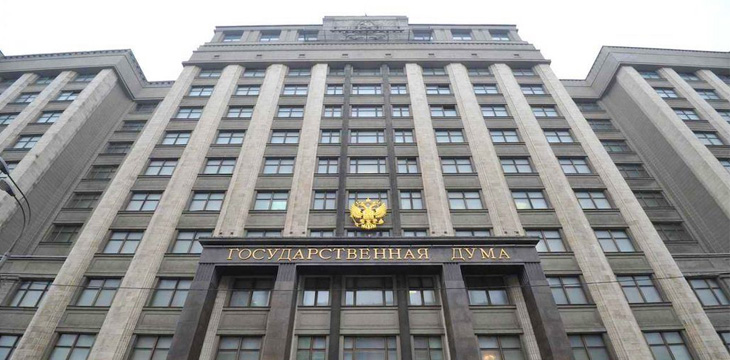|
Getting your Trinity Audio player ready...
|
Last Tuesday, Russia’s Duma, the governing body, reviewed a set of laws that were recently drafted to oversee the cryptocurrency industry. Simply put, the laws define both cryptocurrencies and token as property and provide guidelines for how crypto and blockchain-related technologies are utilized. The bill, “On Digital Financial Assets,” proved to be a hit with lawmakers, who approved the measures almost unanimously.
The bill had been in the works since last year and the Duma had a deadline of July 1 for its submission. It covers not just cryptocurrencies and blockchains, but smart contracts, crypto mining and initial coin offerings (ICO). Tuesday’s session presented the bill before 411 deputies, of which only one voted against it.
In a news release following the vote, the Duma said, “These specifications determine that both cryptocurrency and tokens constitute property, identifying key differences between cryptocurrency and tokens on the basis that there is a single issuer (for tokens) or a variety of issuers/ miners (for cryptocurrency), as well as emission goals.” The release went further, stating, “In this document it is directly determined that digital financial assets do not constitute a legal method of payment within the territory of the Russian Federation.”
When the bill was first introduced in April, feedback among the political parties was mixed. The Kremlin, however, was putting pressure on lawmakers to design legislation to govern the crypto industry, foreign-based ICO investments and tax obligations. Critics have opposed the wording, including an expert member of the Duma’s panel on the digital economy, Igor Sudets. Sudets said in March that the wording will make it so no one will want to launch an ICO in Russia. Perhaps that was the idea.
The bill stipulates, among other things, that digital assets can only be traded on authorized exchanges, and that the exchanges are required to follow strict anti-money laundering and counter terrorism financing laws. A recent addition to the bill specified that exchanging $9,600 or more worth of crypto for fiat would require adherence to exchange regulations.

 02-21-2026
02-21-2026 




